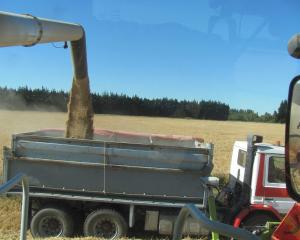
In 2012, the Government passed legislation to enact a 10-year roll-out in banning battery eggs — more than 80% of New Zealand eggs were laid in battery cages at the time.
By 2017, when 33% of battery cage farms had converted to colonies, which were allowed under the new legislation, Foodstuffs and Woolworths announced they would buy only free-range or barn-raised eggs from 2025 and 2027, respectively.
The Poultry Industry Association of New Zealand executive director Michael Brooks said about 16 small free-range farmers around the country went out of business last year, largely because of the pandemic, when cafes and farmers’ markets were unable to get stock — only supermarkets.
"If you’re going to be a supermarket ... they want you to be larger scale. So the big players sell to the supermarkets ... but a lot of those large suppliers get some of the smaller guys to supply to them, and then on-sell to the supermarkets.
"But if you didn’t have that, then some of the little guys got really hit."
It was ironic the transition from battery hens actually went smoothly, but it was the supermarket saying no to colony eggs which caused pain in the industry, Mr Brooks said.
"There are anecdotal rumours that the supermarkets — I don’t know if they still do but certainly then — were making more profit margin on free range and barn — so it wasn’t exactly a decision that’d hurt them financially.
"They claim it’s consumer demand and welfare. Well, they never claimed welfare before."
Foodstuffs spokeswoman Emma Wooster said the government legislation had been a significant change for the egg supply industry and temporary buying limits had been put in place to support the transition.
"All Foodstuffs stores are owned and operated and mostly purchase their eggs from local suppliers, so the limits, if any, differ from store to store depending on the egg supply situation in their area of New Zealand."
Foodstuffs stores still provide barn and free-range eggs, and will continue to provide colony eggs until 2027.
Mr Brooks said the combination of the legislation and the announced supermarket ban led to a drop of between 600,000 and 700,000 laying hens in the commercial flock.
With many big industry players out of the game, small-scale and boutique suppliers have been picking up the slack to supply private buyers, putting pressure on the farms to meet demand.
Greenfield’s Free Range owner Jo Greenfield had one question: "why?".
"Why did the Government not get egg supplies up by supporting the smaller egg farmers, giving us a grant to enable us to get up and running with all the correct start-up stuff needed to keep MPI [Ministry for Primary Industries] happy.
"I would have taken that up happily, and so would others.
"This was such an easy fix five years ago, even two years ago.
"Why was it left to the actual date of egg layer farms closing down before they finally said, ‘oh sorry there will be no eggs for a while’."
MPI national manager of animal welfare and Nait compliance Gray Harrison said during the past 18 months MPI had been in regular contact with operators and visited farms needing to transition from battery eggs before January 1.
"It was known that prohibiting conventional cages, and requiring the industry to move to colony cages, barns or free-range systems would involve an investment for egg producers.
"The phased transition acknowledged this and gave producers time to make the changes in a way that would minimise the impact to their business and any possible cost to consumers."















